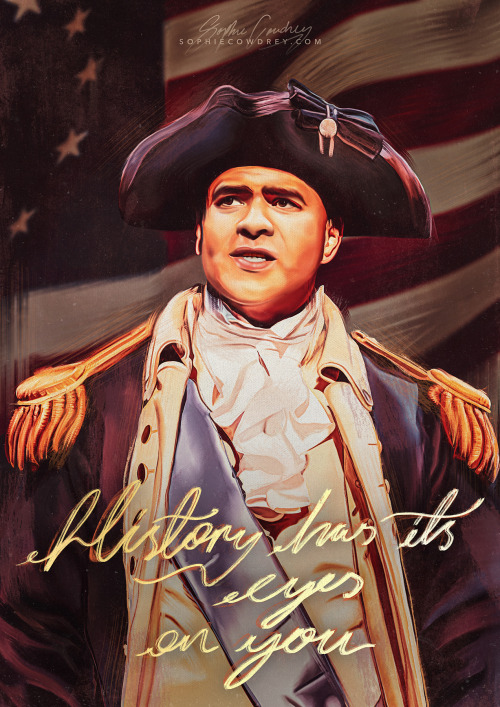#george washington
I am a Serious Artist
“Nonsense! Oak isn’t just a material, it’s a theme!”
—George washinton, in conflict with his carpenter
“Because Washington was childless and drew close to several aides, many biographers have been tempted to turn them into surrogate sons, but the only one who closely matched this description was the Marquis de Lafayette, who eagerly embraced the role. The young French nobleman was tall and slim, with a pale, oval face and thin, reddish-brown hair that receded sharply at the temples. His nose was long and slightly upturned, his mouth short but full-lipped. Like the young Washington, Lafayette had an extraordinary knack for endearing himself to older men, and he looked up to them admiringly. Washington’s fondness for Lafayette’s boyish zest probably expressed some suppressed craving for paternal intimacy. So many things about the younger man—his florid language, his poetic effusions, his transparent ambitions, his well-meaning if clumsy manner—seemed the antithesis of himself. Lafayette was pure-hearted and high-spirited, with an impetuous streak of grandiosity. Where Washington was guarded about his pursuit of fame, Lafayette, Jefferson saw, was always “panting for glory” with an almost “canine appetite for popularity and fame.” Abigail Adams found him too assertive: “He is dangerously amiable, polite, affable, insinuating, pleasing, hospitable, indefatigable, and ambitious.” Indeed, despite a certain shyness, Lafayette showed a courtier’s love of compliments, was a master of flattery, and liked to hug people in the French manner. Perhaps Washington doted on the young man because he dared to express emotions that he himself stifled, thawing his frosty reserve and opening an outlet for his suppressed emotions. Lafayette seemed to transport Washington back to his own youth, before he was stooped under the weight of responsibility, reminding him of love, passion, and chivalry.”— Washington: A Life by Ron Chernow (via brimmely)
Washington: I’ve created a perfectly functional cabinet.
Hamilton: You have another cabinet we don’t know about?
Hamilton: You know how when you boil Pepsi it really opens up a different kind of flavor?
Washington:
Washington: When you fucking what
Burr: It must be hard not being able to laugh
Washington: I do have a sense of humor, you know.
Burr: I’ve never heard you laugh.
Washington: I’ve never heard you say anything funny.
Washington: It costs $0 to keep rude comments to yourself.
Hamilton: It also costs $0 to shout them for everyone to hear so,,,
Okay, but my seven year old sister was so sad when she found out George Washington died…like, actually hurt. I think she thought of him as a friend at this point.
I mean… George could’ve written some kinky stuff to Martha… we don’t know… because SOMEBODY BURNED THEM…
*side eye* MARTHA.
I mean this is pretty much historically accurate according to the Chernow biography.
I will never forget reading the chapter that discussed how George apparently told dirty jokes, ordered known aphrodisiacs at the time, and wrote illusions to sex in letters to a few people that have survived. There is also this line “..J. P. Morgan destroyed some letters by Washington that he owned, claiming they were “smutty.”“ It was like going into this whole other area where I learned things I didn’t want to know about the father of this country.
Post link
I dislike talking politics, but history is my thing, and nothing irks me more than seeing it twisted to try to make some sort of political point.
Recently, a television pundit tried to qualify Michelle Obama’s statement that slaves built the White House by saying it wasn’t so bad… The slaves were well-fed and housed decently.
The pundit claimed to be a history teacher, and I’m hoping that’s not true. Because if that’s what he was teaching his students, there’s a serious problem.
This person is ignoring historical fact in favor of opinion. Abigail Adams was there. She saw the slaves working on the White House, and wrote a first-hand eye-witness account of their living conditions.
half fed, and destitute of cloathing, or fit for —re, to labour,…”
But even if he had been factually accurate about the slaves being “treated well,” there is no defending slavery. NONE.
There is no way to soften slavery’s horrors by saying “not all masters…”
Slavery meant having no bodily autonomy or rights. It meant rape without recourse. It meant being unable to prevent the molestation of your children. It meant seeing those children sold away, never to be seen again. It meant forced breeding. It meant scars crossing your flesh.. It meant being nothing, a THING to be used and abused subject to the whim of your owners.
Consider the fact that even “well-fed” or “well-treated” slaves would risk their lives to escape, traveling hundreds of miles to the North, where they faced starvation and desperation in trying to eke out a living, constantly looking over their shoulders for people who would kidnap them and sell them back into bondage. Pause for a moment and reflect on why that might be.
I’ve also seen people try to compare the experience of other immigrant groups to the lives of slaves, and that’s equally incorrect. Even the most disdained groups could not be raped and murdered on a whim, the only punishment having to compensate the owner for the slave’s “value.” Even the most despised groups could still own personal property and retain the fruits of their labors. They could hope for a better future for their children. They could marry as their hearts led them and not have to fear their husband would be sold off, or be forced to sexually satisfy other people. They would be able to keep their children. They were permitted to educate themselves. And most importantly of all, they were considered human, even if their social status was low.
For a county which claims to value freedom so highly, it’s very odd we would say an utter lack of it is “not so bad” as long as people are fed and housed with a modicum of decency.
I don’t know what kind of point this man was trying to make, but it’s not factual - or even decent - to say that slavery was “not so bad.” I’d invite them to try it to prove me wrong, but I’m not that cruel.
I can’t believe I have to do this again, but here we are.
Last night, there was a discussion in on of my “Hamilton” FB groups about the Founders and the fact some of them were slave-owners. The amount of excuses that came tumbling out both staggered and appalled me.
So, one last time…
“It was a different time!”
Yes. Yes it was. And even during this different time, there were people who stood up and said slavery was wrong, so it’s not like the Founders had never been exposed to opposing viewpoints on the matter, or were unaware there was a different way they could live. Let us compare a few different examples.
Lucy Webb Hayes would one day grow up tor be First Lady, but her childhood wasn’t one of wealth or comfort. Her family could best be described as “middle class.” Her father, Dr. Webb, was sent notice his aunt had died in Kentucky and left him about twenty slaves. Instead of replying, “Awesome! Auction them off and send me the money!” Dr. Webb packed his bags so he could go down to Kentucky personally to free them. Again, this wasn’t a rich guy by any means. His family needed that money. But he refused to even consider profiting from slavery. When he arrived in Kentucky, he found the slaves ill from a cholera epidemic. Instead of saying, “Uhhh, I’ll come back later,” Dr. Webb rolled up his sleeves and nursed them himself. He contracted cholera during his efforts and died. His widow, Mrs. Webb was now in a really bad spot, because her household had no income and there wasn’t any social safety nets like Social Security for her children. She was advised to sell the slaves to support herself and her children. Mrs. Webb said she would rather become a washerwoman (which was a low-paid and not-very-respectable position at the time) before she would support herself from the proceeds of slavery.
On the other hand, George Washington married a woman who had inherited slaves from her first husband. He could choose to free those slaves, but that would entail purchasing them from the estate. George elected instead to leave those people in slavery and profit from their labor. (If they lived in Philadelphia for a certain period of time, they would be freed automatically by law, so George quietly sent them home on “vacations” or scheduled unnecessary trips across state lines in order to avoid establishing legal residency for the enslaved. He worried in his letters about the [white] public finding out about his deception.) Some of them were promised they’d be freed when the Washingtons died. One of them, Ona Judge, found that promise rescinded when Martha Washington decided to give her as a “wedding present” to her unpleasant granddaughter. The Washingtons then used underhanded tactics to try to kidnap Ona or trick her back into slavery until she was elderly and of no use to them.
Imma stop right here and point out again that George was really, really worried about the public finding out about this. He was concerned his actions might cause RIOTS. Because he knew what he was doing was
w r o n g
and he was taking steps - as he outlines in his letters - to make sure the public was “deceived” to keep himself safe from outcry.
This is not a poor, ignorant “man of his time” just doing what was normal, and oh gosh we just shouldn’t judge him by our contemporary standards. Nor was he in such desperate financial straits that he had no choice but to leave things as they were.
Another one of George’s fellow Founders, John Adams, refused to own slaves on general principle, and though he was not wealthy, employed free black workers on his farms instead. Adams, like the other Founders, wasn’t in favor of immediate emancipation because of the economic and political turmoil it would cause, but he made a stand in his personal life by refusing to take advantage of slave labor, even though it would have even more convenient and cost-effective for him.
So, yes, it was a “different time,” but even during that time, there were people saying loudly that slavery was wrong and making personal financial sacrifices based on their principles. We shouldn’t make excuses for those who chose the easy and wealth-driven path just because it was legal at the time. They made their choices.
“We should try to understand based on the context of the era!”
Yes, but understanding is NOT excusing. The best modern comparison is that I can “understand” why a frat boy may feel he was entitled to abuse the body of an intoxicated girl because of the aura of rape culture on campus, but I’ll be damned if I excuse it in any fashion.
By saying slavery was wrong, we are not judging them by 21st century ethos - we are judging them by the ethos of their own era.Again, the concept of the evils of slavery was not unknown or uncommon at the time. For reference please see the MASSIVE FRICKIN’ REAMS of abolitionist literature available at the time. Some people simply chose to accept slavery because it was personally convenient and were unwilling to make financial sacrifices.
“Yes, but not everyone accepted that it was wrong and…”
Sure. It’s remarkably easy to convince people that acting in their own self-interest is a righteous thing.
Only Thomas Jefferson would brag about arranging the seating at a dinner for three people.
Lafayette must not be the immigrant we know and love, because at first I thought he was talking about Alexander.





























